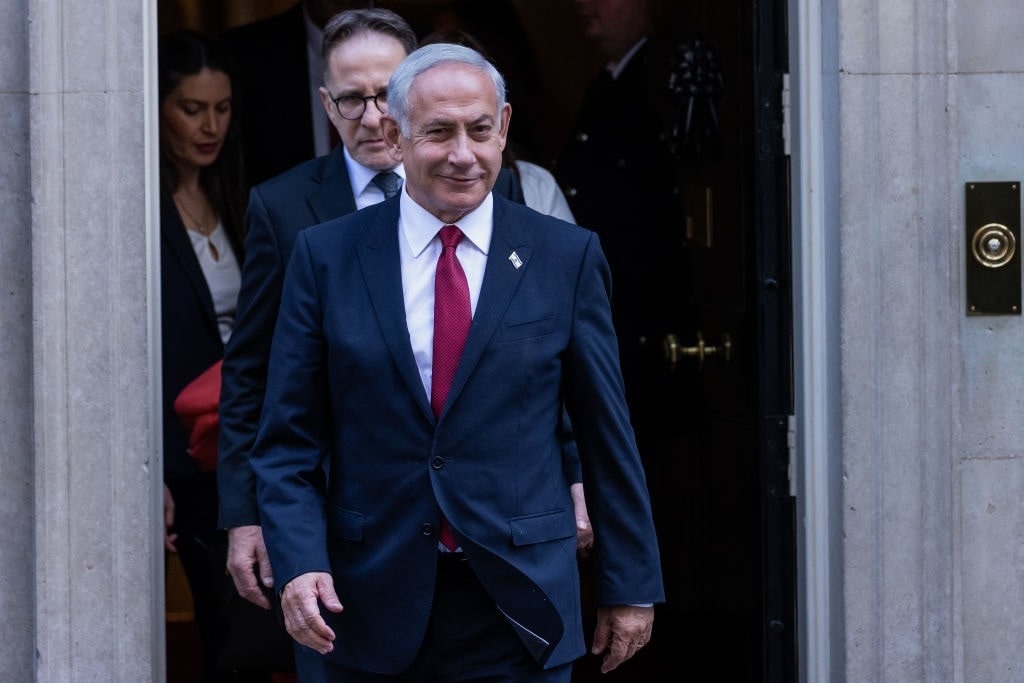After recent strikes by Israel on leaders of Hezbollah in Lebanon and Hamas in Iran, Israeli Prime Minister Benjamin Netanyahu remains defiant and resolute. Throughout the war started by Iran-backed Hamas terrorists on October 7, 2023, Israel has shown no reluctance to take on and defeat the nation’s enemies, regardless of where they are: Gaza, Lebanon, Syria, or Iran. However, with the unyielding defense of the Israeli homeland, some believe there is a risk of a wider confrontation.
Israel Intends to Kill Hamas Leadership
Israel made it abundantly clear it intended to kill the Hamas leaders responsible for the October attack. The Israel Defense Force (IDF), Mossad and Shin Bet intelligence agencies, and Israeli Air Force are making good on the promise. There is another, perhaps more powerful, message being sent to Iran by Israel. Iran must realize they are no match for the effective precision weaponry the IDF can employ quickly, with devastating results for Tehran.
Not long ago, as Liberty Nation News explained, “The message conveyed by Israel’s aerial attack memo was crystal clear: You sent over 300 missiles and drones and hit nothing, while we sent a single missile and hit the target. That’s compelling communication.” Furthermore, there have been Israeli-targeted airstrikes and assassinations on key terrorist leaders, including in Damascus, Syria, when Brigadier General Mohammad Reza Zahedi, the commander of Iran’s Islamic Revolutionary Guard Corps (IRGC) Quds Force, was killed in early April. More recently, one strike killed Fuad Shukr, senior advisor to Hezbollah leader Hassan Nasrallah, while another – thought to be an assassination coordinated between Mossad and an Iranian dissident – ended the life of Ismail Haniyeh, the political leader of Hamas.
“The assassination of Hamas political chief Ismail Haniyeh was carried out in Tehran this week using an explosive device that was hidden months ago inside the guesthouse where he was staying, a report says,” Fox News explained. If true, the Hamas terrorist leader had a true Hotel California moment. These successful attacks demonstrate Israel’s capability to take out individuals regardless of where they are. Additionally, the Haniyeh killing demonstrates a much bigger problem for the Tehran leadership – a high-profile assassination right under the IRGC’s nose.
The Israeli strikes also demonstrate the impotence of the Iranian air defense systems to counter the IDF attacks and the incompetence of Iran’s intelligence apparatus to warn of the attacks. Nonetheless, the conventional wisdom among President Biden’s national security officials is that Israel’s actions pose a threat of a wider regional confrontation. “Again, we’re going to do everything we can to make sure that we keep things from turning into a broader conflict throughout the region,” Secretary of Defense Lloyd Austin told reporters during his travels in the Philippines on Wednesday (July 31).
Fear of an expanded regional conflict drives most of the commentary on the Israeli defensive war against Hamas and Hezbollah. “The assassination of Hamas’ top leader Ismail Haniyeh in Tehran and the strike against senior Hezbollah commander Fuad Shukur in Beirut could upend those painstaking attempts to defuse a Middle East powder keg . . . which could drag the region into all-out war,” the Associated Press observed.
US Desires to Avoid Broader Conflict Fail to Persuade
While the US seeks to limit a “broader conflict,” Israel and Iran have made their country’s positions clear. In a televised address to the Israeli people, Prime Minister Benjamin Netanyahu iterated Israel’s position emphatically:
“I have made it clear that we are in this struggle and battle against the Iranian axis of evil. This is an existence war with a stronghold of foreign militaries and missiles that they wish to strangle us with . . . Anyone who harms our country will die, will be killed . . . Israel will exert a very heavy price for any aggression against us . . . We will fight together, and God willing, we will win together.”
In downtown Tehran, where the Iranian leadership had hoped there was safety from the long-armed reach of Israel, Hamas’s Ismail Haniyeh was killed with a bomb hidden in his guest house managed by the IRGC. Nothing the Iranians did to provide sanctuary for the Hamas leader proved effective. No intelligence resources and no IRGC security guards kept a valued guest of Ayatollah Sayyid Ali Khamenei safe. In a show of indignation and puffery, Khamenei posted on his webpage:
“[F]ollowing this bitter, tragic event which has taken place within the borders of the Islamic Republic, we believe it is our duty to take revenge . . . The brave leader and prominent Palestinian mujahid, Mr. Ismail Haniyeh, joined his Creator in the early hours at dawn, and the great Resistance Front is mourning his loss. The criminal, terrorist Zionist regime martyred our dear guest in our territory and has caused our grief, but it has also prepared the ground for a severe punishment.”
In Iran’s previous attempt to retaliate, no amount of persuasion from the outside could prevent the IRGC from embarrassing itself with a show of how ineffectual its cruise missile, ballistic missile, and drone armada were. If the Iranian leadership takes a moment to consider what has happened in the past, caution may replace bravado. Perhaps, despite Khamenei’s threatening words, Iran will think better of a serious attempt to attack Israel. The IDF appears capable of striking and operating inside Iran with impunity. Though counterintuitive, Israel’s retaliatory abilities and Iran’s demonstrated powerlessness to stop it may have the deterrent impact of preventing a wider regional war. The unknown is whether Iran realizes its plight.
The views expressed are those of the author and not of any other affiliate.




